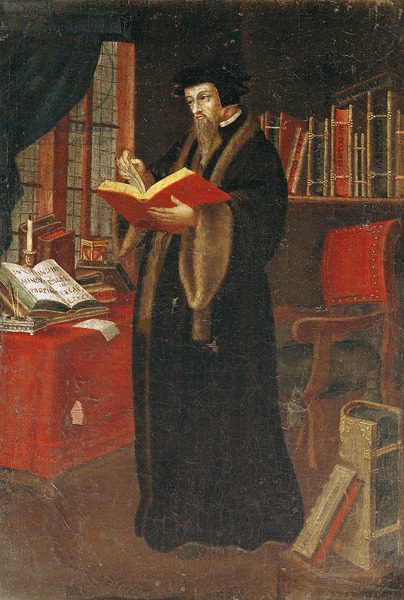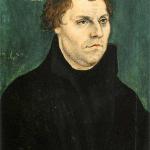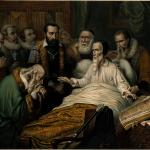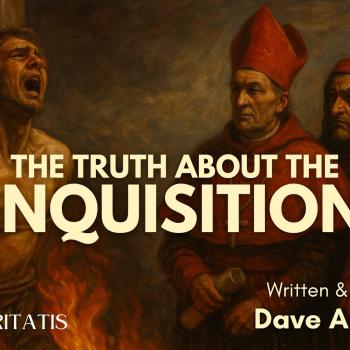
The Comparets, who were in the city prison, were now examined with cruel torture to force from them the acknowledgment of a conspiracy . . .
Calvin’s share in these events was not official. The trials and condemnations were the work of the civil authorities. His participation in the struggle was none the less real . . . He expressed satisfaction that torture would probably wring from two of the prisoners the information desired. [To Farel, Opera, xv. 693. Eng. trans. Letters of John Calvin (Phila.) Vol. iii. 206. “Before ten days we shall see, I hope, what the rack will wring from them.”] In spite of his aversion to cruel deaths, which has already been noted, he saw a special act of God’s judgment in the prolongation of the sufferings of the Comparets through an unskilfulness on the part of the executioner which the Genevan government rebuked by the banishment of that official. [Ibid.; Opera, xxi. 610] He felt that the authorities had been, if anything, too moderate in their action. [To Bullinger, Ibid., xv. 684] It is Calvin in his hardest and most unsympathetic mood that here expresses himself; but it should be remembered in explanation that he had suffered for years almost to the shipwreck of a work which he believed to be even more that of God than his own at the hands of the party the destruction of which he now witnessed with such satisfaction.
* * *
From: Hugh Young Reyburn, John Calvin: His Life, Letters, and Work, London: Hodder and Stoughton, 1914 [a non-Catholic work], pp. 202-205:
One of the two men, Comparet, who had been arrested, was condemned on 27 June [1555] to have his head cut off, his body quartered, and the sections exposed in different places according to custom. His head with one quarter of his body was fastened to the gibbet referred to. . . . the younger Comparet was simply beheaded. The executioner did his work so clumsily that he added needless pangs to the victim’s agony, and the Council punished him by dismissing him from his office for a year and a day. Calvin, on the other hand, wrote to Farel on 24 July, “I am persuaded that it is not without the special will of God that, apart from any verdict of the judges, the criminals have endured protracted torment at the hands of the executioner.” [Opera, xv. 693] . . .
It was determined to get the truth out of him [Francois Daniel], and Calvin wrote to Farel on 24 July [Opera, xv. 693], “We shall see in a couple of days, I hope, what the torture will wring from him.” . . .
Although he was neither consulted as to the torture, nor was present when it was applied, Calvin certainly approved of it. . . .
It is unfortunate for Calvin’s reputation that he should have thought the use of torture justifiable under any circumstances, and it is still more unfortunate that he commended the use of it to prove that which was evident. . . . All that was proved was a sudden flare-up on the street created by the reckless folly of some half-intoxicated Libertines. Nevertheless, the Council acted as if the rioters had been the agents of a carefully-laid scheme of revolution.
It is easy here, as in the Servetus case, to say that Calvin was inhumanly bloodthirsty. In fact, he received a good deal of contemporary criticism from the other Swiss churches for his part in the affair . . . Unofficially, he was certainly responsible in no slight measure, for he approved the action of the Council and felt that the authorities had been, if anything, too lenient toward the offenders. (pp. 48-49)
There continues to be an ongoing double standard: to always highlight Catholic sins of this sort, from this period, while downplaying or ignoring the same exact sins when committed by prominent Protestants. That double standard is precisely why I present posts such as this one on my blog: to set the record straight and disclose the full truth. I present Calvin as he was: “warts and all” and I also show that he agrees with us in many areas, too (recently I documented 50 such areas). Truth is truth.
About all most Protestants are aware of in this regard (if even this much) is Calvin’s advocacy of the death penalty for the pantheist Michael Servetus (the famous Protestant / Calvinist “scandal”). There is much more than that.
*****













